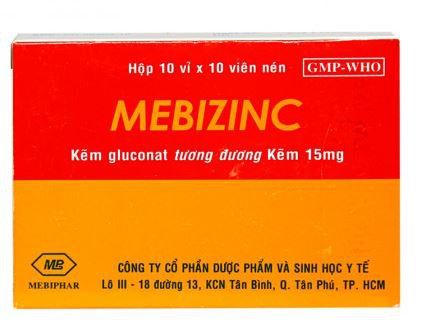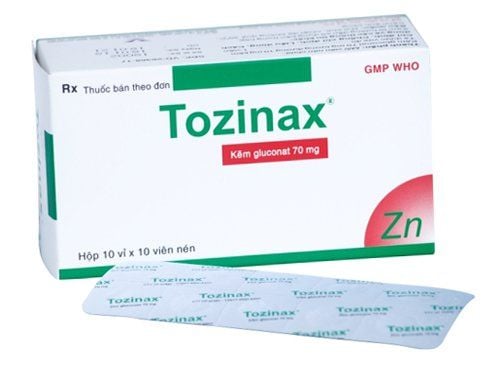This is an automatically translated article.
Vitamins play an important role in the development of children. Vitamin deficiency can be seen as a cause of frequent illness in children, the nutritional status of children can be at alarming levels such as stunting, emaciation and serious health effects in each development stage.1. Meaning of vitamins
Vitamins belong to the group of organic compounds that cannot be synthesized by human or animal cells except vitamin D. Vitamins are present in all foods, depending on the type of food, but the vitamin content and structure of the vitamins are completely different from other nutrients such as protein, lipid, glucide... but it is essential for metabolic reactions to help maintain the body's normal growth and life. Depending on the type of vitamin deficiency, the human body, especially children, will have different symptoms.Based on water soluble or oil soluble properties, vitamins are arranged into two main groups:
Fat soluble vitamins include: Vitamin A, vitamin D, vitamin K, vitamin E. Water-soluble vitamins include: B vitamins, vitamin C, ... In addition, depending on gender and stage of development, the need to provide different vitamins. Vitamin deficiency can have many causes and at the same time lack of many vitamins at the same time. Therefore, in the course of treatment, it is necessary to find the cause and combine many different vitamins. Moreover, because the body cannot synthesize vitamins on its own, the use of foods rich in vitamins to supplement the body should be done properly to provide adequate and balanced nutrients according to the recommended needs. . Except for vitamin D, which is found in small amounts in foods, it is mainly absorbed through the skin by sunlight.
For children, in some cases, it may be necessary to supplement with micronutrients, especially vitamins because when the child is sick, it is possible that these substances will be lost and cause significant effects in the child's life. evolution. Children with medical conditions or unreasonable nutrition such as malnutrition, anorexia, growth retardation, infectious diseases, cough, diarrhea, obesity... it is very necessary to be supplemented with vitamins to help the process. better body metabolism.
2. Anorexia in children and the main causes of this condition
Anorexia in children can have many different signs and symptoms. However, to better understand this condition, parents need to know the main cause of this condition.One of the leading causes of anorexia in children is due to lack of food and especially lack of micronutrients right from the time the child is in the womb, leading to fetal malnutrition. The second reason is that children are constantly sick, and at the same time suffer from chronic diseases caused by bacterial infections, viral infections of the respiratory tract, digestive system, causing a great loss of micronutrients and vitamins. Loss and deficiency of vitamins, including vitamin A, vitamin C, vitamin B group, magnesium, vitamin B6, iron or zinc deficiency, loss of zinc causes anorexia in children. Moreover, when children have bacterial infections, antibiotics will often be used, leading to intestinal dysbacteriosis along with physical damage to the digestive system, so the child may have abdominal distension, indigestion, leading to anorexia becomes more severe. In addition, this condition of the child can also be caused by other reasons such as introducing solid foods too early, the food is not suitable for the child's taste, or it may be due to a psychological condition.

Có nhiều nguyên nhân khiến cho trẻ biếng ăn như mất kẽm, thiếu vitamin
3. Harm of vitamin deficiency in children
3.1. The harmful effects of vitamin A deficiency Vitamin A has a protective effect on the eyes, against night blindness and eye-related diseases such as dry eyes. In addition, vitamin A also plays a role in helping the normal development of bones and teeth, while protecting the mucous membranes and skin, helping to strengthen the body's resistance, thereby helping to fight infections.When vitamin A deficiency can cause symptoms such as: Dry eyes, possibly permanent blindness, reduced immunity, slow growth in children. Prolonged vitamin A deficiency can affect a child's intellectual development later in life.
Foods rich in vitamin A include:
Foods derived from animals such as liver, meat, eggs, dairy products... Plant-based foods are often found in yellow fruits. , red like tomato, carrot, ripe papaya, dark green leafy vegetables - spinach, water spinach, amaranth..., vegetable oils are often added vitamin A 3.2. The harmful effects of vitamin C deficiency Vitamin C helps strengthen the immune system against infections and speeds up wound healing. Causes of vitamin C deficiency may be due to lack of breast milk and insufficient milk supply for children; lack of green vegetables and fresh fruits; Eating overcooked food causes loss of vitamin C content in food or children have bacterial infections, digestive disorders...
Vitamin C deficiency often occurs in children from 6 months to 2 years old, manifested through bleeding under the skin and mucous membranes such as bleeding gums, nosebleeds, poor enamel or tooth decay. Foods rich in vitamin C include green vegetables, fresh fruits such as oranges, lemons, tangerines, grapefruits, tomatoes, broccoli, mangoes..
3.3. The harmful effects of vitamin D deficiency In order to help the child's body optimally use calcium and phosphorus minerals, it is necessary to supplement with vitamin D. Vitamin D also helps form and maintain strong bones and teeth. Lack of vitamin D will lead to deficiency of other micronutrients. Specifically, in order for calcium to be absorbed and used well, the body needs to have enough vitamin D, otherwise, sometimes even if the child eats and drinks enough calcium needs, the child still lacks calcium because it is not absorbed. to rickets in children. Therefore, when a child has rickets, one can immediately think of the cause of vitamin D deficiency.
Thus, if the child is inadequately or inappropriately raised with a dark cramped space and is not exposed to light. In the sun, children are very susceptible to rickets and delayed teething.
Nutritional sources of vitamin D in natural foods are very few. However, it is also impossible to ignore foods with good vitamin D content such as fish liver (especially sea fish), chicken eggs... In addition, the best source of vitamin D is due to sunlight. The body synthesizes from provitamin D into vitamins for the body to use.

Mất kẽm, thiếu vitamin có thể gây nên tình trạng biếng ăn ở trẻ
Vitamin PP (B3) deficiency is common in children who eat flour, corn, or children in groups who do not eat enough or may have symptoms of chronic digestive disorders. Children with vitamin PP deficiency may have symptoms related to diarrhea, mucus-like or bloody stools, or inflammation of the mouth and tongue, and they have difficulty sleeping. Foods rich in vitamin PP include fermented products or meat and fish that are also rich in vitamin PP. In addition, liver, coarse grains, nuts, beans...
Vitamin B6 deficiency can cause hair loss in children, fatigue, slow sleep and slow wound healing.
The function of vitamin B12 has the role of helping to regulate protein metabolism, increasing red blood cell production, lowering cholesterol ratio, in addition to helping to fight allergies, reduce pain... Foods rich in vitamin B12 include: liver , beef, eggs, cheese, milk, kidney...
In short, vitamins play an important role in the development of children. Vitamin deficiency can be seen as a cause of frequent illness in children, the nutritional status of children can be at alarming levels such as stunting, emaciation and serious health effects in each development stage. Therefore, parents need to provide enough vitamins for their children through nutrition.
Babies also need to add necessary micronutrients such as: Zinc, selenium, chromium, vitamins B1 and B6, ginger, acerola fruit extract (vitamin C), ... to improve taste, eat delicious, achieve The height and weight are right and beyond the standard, the immune system is good, and the resistance is enhanced to reduce minor illnesses as well as less digestive problems. The improvement of symptoms can take place for a long time, so it is recommended that parents be calm and persistent when supplementing with nutrients for their children, either through food or functional foods. In particular, the use of functional foods should choose those of natural origin that are easily absorbed, do not allow simultaneous use of many types or continuously change the types of functional foods.
To have more knowledge about taking care of children by age, you should regularly visit the website vimec.com and make an appointment with the leading doctors, Pediatricians - Nutritionists when you need advice.













